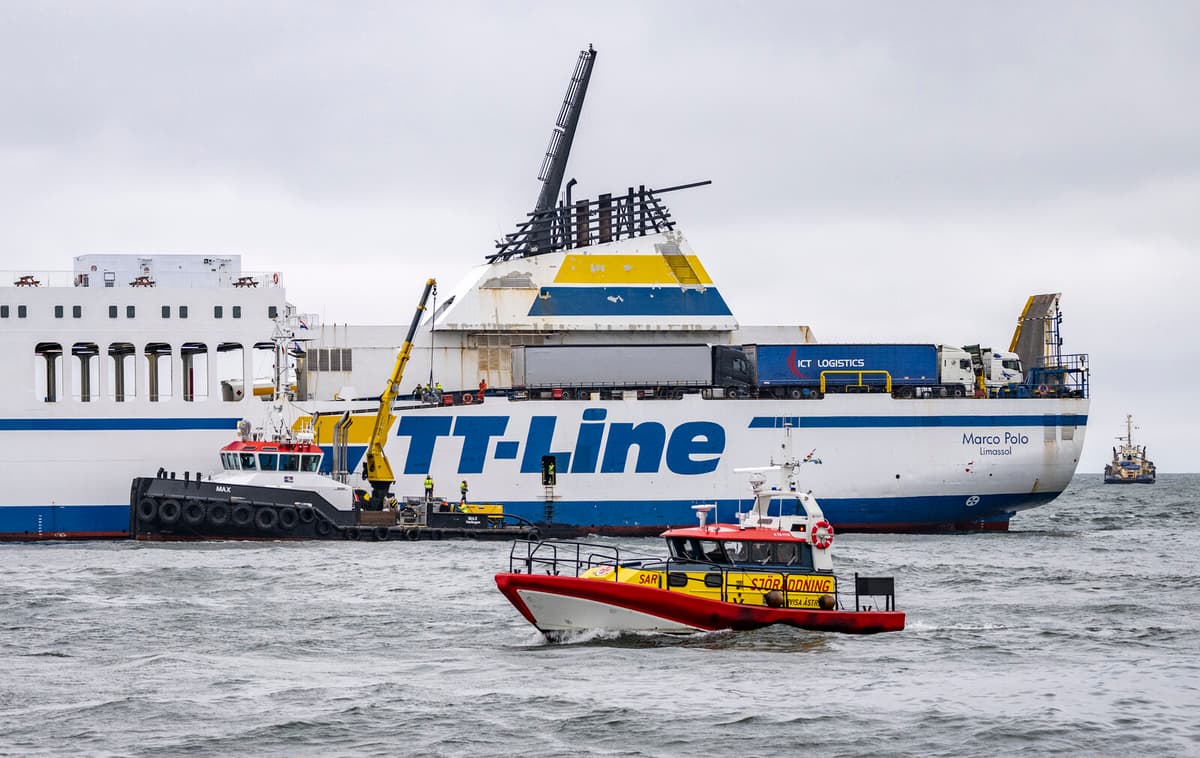It was set up for an accident when TT-Line's ferry Marco Polo approached Stillerydshamnen in Karlshamn on October 22, 2023.
The GPS equipment was broken and the navigator thought they were out at sea outside Hanö. In reality, the ferry was heading inside Hanö and the vessel ran aground twice with a 10-minute interval – but the crew on board did not understand.
About 60,000 liters of oil leaked out, the beaches along Listerlandet in Blekinge were polluted, and birds were injured.
Did not use radar
A contributing cause of the accident was that the bridge crew relied solely on one navigation method, writes the Swedish Accident Investigation Authority. The radar system was not used.
"This deviates from the international principles, which state that all available navigation aids should be used," writes the Accident Investigation Authority.
After the first grounding, personnel in the engine room suspected that the vessel had collided with something, but this was not communicated to the personnel on the bridge. The personnel should have made a more thorough analysis of the alarm signals and thereby obtained a correct position earlier, according to the investigators.
Then maybe the second grounding could have been avoided and the authorities could have been alerted earlier.
The fact that different deviations were not caught is seen by the Accident Investigation Authority as a sign of deficiencies in the safety culture. Furthermore, the crew had too little training in both the navigation system and the safety organization system.
The crew's communication channels to the shipping company's personnel on land also failed during the grounding, which may have delayed the alert to Swedish authorities.
Authorities criticized
The Swedish authorities' handling may also have contributed to the consequences of the accident being exacerbated, according to the Accident Investigation Authority, which points to deficiencies in communication and cooperation between, for example, the Coast Guard and municipal rescue services.
The sharing of information about the oil spill and the accident site was complicated due to what the Accident Investigation Authority calls "legal challenges". Therefore, the government is urged to appoint an investigation into how society's ability to handle larger ship accidents can be strengthened.
The passenger ferry TT-Line Marco Polo was on its way from Trelleborg to Karlshamn and then on to Klaipeda in Lithuania. On Sunday, October 22, the vessel ran aground off Blekinge. The alarm came at 06:25.
The vessel first ran aground and began leaking oil, then continued and ran aground again, where it got stuck. Already the same day, the oil reached the shore at Hörvik in Sölvesborg Municipality.
On Sunday, October 29, the vessel slid off the ground but soon got stuck on another, and a new oil spill was detected. A total of 60,000 liters of heavy oil leaked into the sea, according to the Coast Guard.
An investigation has shown that a GPS on board was broken and that the crew relied solely on it in the fog. Two crew members have been fined 50 days' wages each for negligence in maritime traffic.
The Coast Guard has claimed 1.2 million kronor in water pollution fees from the shipping company. This has been appealed and will be a matter for the Stockholm District Court to decide.






